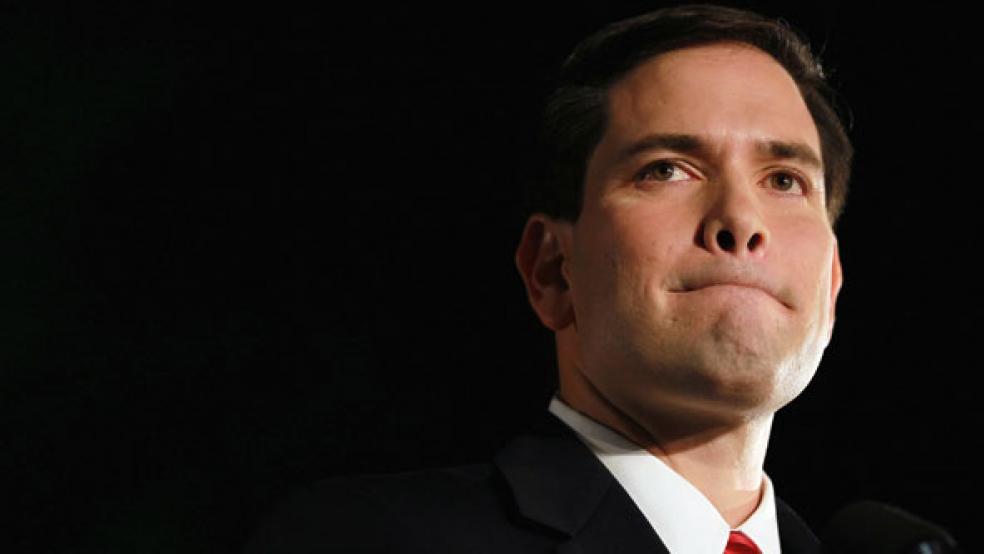We might well call the last couple of years the Era of the Grand Reform.
When financial crises pushed America to the brink of catastrophe, the idea of incremental political change and improvement became utterly old-fashioned on both sides of the political divide. Barack Obama rode a tide of voter anger to office and promptly launched the most ambitious overhaul of the American health-care sector since HillaryCare notoriously failed in 1993-4. Democrats in Congress married that to a massive expansion of regulations aimed at reining in Wall Street financial institutions.
Not to be outdone, Republicans took back the House in their largest midterm victory since FDR, promising sweeping changes in spending, and immediately proposed equally ambitious changes in entitlement structure and budget reforms. Later this month, Washington will face the latest in budget brinksmanship with yet another self-imposed deadline for a deficit-reduction package that could hold significant ramifications for the American economy – just as the previous deadlines did on the FY2011 budget and on the debt ceiling.
In this age of all or nothing, will a smaller compromise bill intended to improve the job-creation environment garner any attention – or even a vote? We will shortly discover the answer to that question, thanks to an odd-couple partnership in the Senate focused on finding a small patch of common ground on economic growth.
The pairing of freshman Senators Marco Rubio, Republican of Florida, and Chris Coons, Democrat of Delaware, has no small amount of irony. Their elections in 2010 generated some of the most vitriolic partisanship of the midterm cycle from both sides. Rubio was cast as a Tea Party crazy far out of the mainstream on the Right, while Coons got painted as a Marxist far out of the mainstream on the Left. Both ran against colorful candidates with plenty of media exposure – Coons against Christine O’Donnell, who had to run an ad to claim “I’m not a witch,” and Rubio against the literally colorful former Governor Charlie Crist. If anyone in 2010 had to pick the two Senators most likely to pair up for a common-ground approach on economics, Rubio and Coons would have been far down the list.
Yet this week the two announced their AGREE Act (American Growth, Recovery, Empowerment, and Entrepreneurship), primarily aimed at incremental improvements in the economic environment for small businesses. It consists of proposals that both Republicans and Democrats have largely accepted and avoids areas of philosophical and political confrontation, although the compromise touches on larger areas where advocates insist on sweeping reform. For instance, on taxes, the AGREE Act extends tax credits for capital purchases that will expire otherwise. On regulatory relief, it waives some Sarbanes-Oxley requirements for smaller businesses where the compliance burden is both heavy and unneeded. Rubio and Coons also addresses immigration with changes in legal immigration restrictions to permit greater flexibility for visa issuance that eliminates per-country quotas. That would allow the U.S. to attract the best and brightest regardless of their country of origin, while keeping the overall cap in place.
The components of the AGREE Act are relatively modest and seem like common sense. When I asked Senator Rubio about these proposals being “low-hanging fruit” in a political sense, he agreed, although he pointed out that the proposals will make a real difference for people in the economy. If Congress could pass a broad reform of the corporate tax code, Rubio said he’d prefer that over this bill – but Congress won’t pass one in this session, and meanwhile, real people need real relief.
More than that, Rubio said, Americans need a reason to think that they will see improvement soon. “If we can pass something that is bipartisan,” Rubio said, “people will look to Washington and see a glimmer of hope. Maybe there is reason for optimism. …What’s holding back American creativity right now is the fear that tomorrow is going to be worse than today, and next year worse than this year.”
That, however, is the question at hand, and the AGREE Act is the test that might provide an answer. Will this Congress find a way to act on an incremental economic reform whose components attract wide bipartisan support – or will the politics of the Grand Reform Era keep it from getting a vote in the Senate?
It’s no secret that Barack Obama wants to position himself in the 2012 race as the man who can stand up to a “do-nothing Congress,” hoping to emulate Harry Truman’s surprise win in 1948. Majority Leader Harry Reid has stalled 15 House bills aimed at improving the environment for job creation as a way to protect Obama’s strategy and to force the House to accept the president’s second attempt at a stimulus package instead. The passage of the AGREE Act would undermine that strategy, as well as expose the partisan calculations of Obama’s jobs bill.
Rubio understands this, but thinks that his partnership with Coons could crack the roadblock in the upper chamber. “I see an opportunity to do something that is true to my principles,” Rubio told me. “What I’m hoping is that the White House will get on board.
“They’ve been hoping to run against a do-nothing Congress, so maybe they’re not excited about Congress actually acting on something like this,” he said, adding, “There are things that are more important than someone’s re-election.”
Perhaps. If the AGREE Act makes it to the floor of the Senate, we will see how many people on Capitol Hill share that view.





